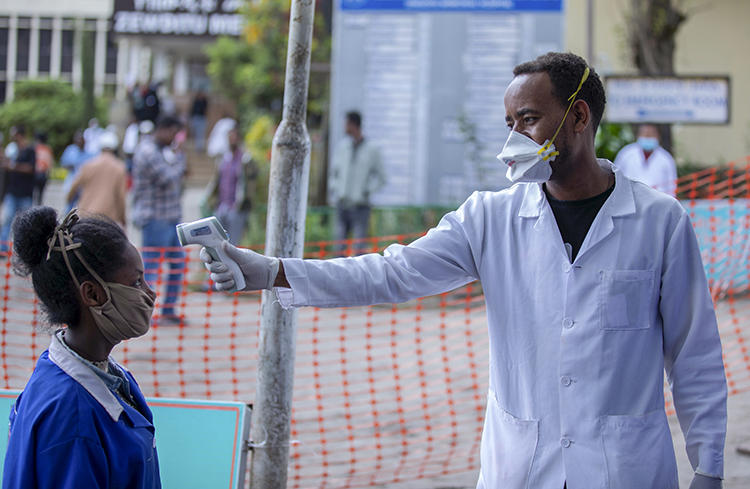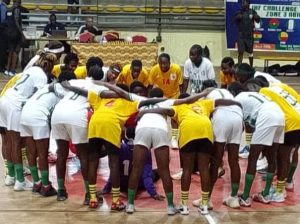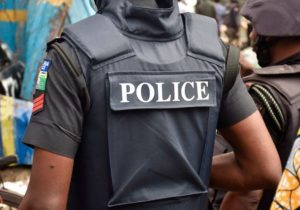Ethiopian journalist Yayesew Shimelis detained following COVID-19 report

Nairobi, April 1, 2020 — Authorities in Ethiopia should immediately and unconditionally release journalist Yayesew Shimelis and cease detaining journalists without charge, the Committee to Protect Journalists said today.On March 27, federal police arrested Yayesew at a relative’s home in the town of Legetafo, according to media reports and two of the journalist’s friends, who spoke to CPJ on condition of anonymity, citing fear that they may face retaliation affecting their employment.Yayesew contributes a column to the privately owned Feteh magazine and hosts a weekly political program on Tigray TV, a broadcaster owned by the Tigray regional government, according to those friends. He also posts original reporting on his Facebook account and on the Ethio Forum YouTube channel , which he administers, they said.The friends told CPJ that Yayesew was brought to court on March 28, and that police were granted six days to hold him in custody without charge. One of the friends, who was able to speak with Yayesew in detention, said that the journalist had not yet been interrogated and police had not said why he was being detained.The arrest came after Yayesew published a report on the COVID-19 virus on Facebook and YouTube on March 26 that was condemned by Ethiopia’s national Ministry of Health, according to the friends and a series of tweets from the local privately owned outlet Addis Maleda.“Imprisoning a journalist at this time, when the public needs information rather than censorship, is likely to discourage critical reporting and dissenting opinions,” said CPJ’s sub-Saharan Africa representative, Muthoki Mumo. “Ethiopian authorities should immediately and unconditionally release Yayesew Shimelis and guarantee that they will not censor reporting on the coronavirus.”In its tweets, Addis Maleda cited an official who said that Yayesew would be tried under the criminal code, but the official did not indicate the specific sections of the law under which the journalist would be charged.In his report, Yayesew alleged that the Ethiopian government had told religious leaders to prepare 200,000 graves to accommodate deaths from the virus, according to the journalist’s friends and Addis Maleda.In a Facebook post on March 26, Ethiopia’s Ministry of Health said that the report was false, and condemned it as a deliberate attempt to confuse the public.One of the friends who spoke to Yayesew on the night of March 26 said that the journalist had expressed fear that the national government would take action against him in connection to the report. The report is no longer available on his YouTube channel, and Yayesew wrote in a tweet on March 27 that his Facebook page had been suspended. In that tweet, he apologized, saying he had not realized that it would cause the alarm that it had.Yayesew’s friends told CPJ that his journalism has been sharply critical of the national government, and that his association with Tigray TV, which is supported by the opposition Tigray People’s Liberation Front party, has not endeared him to national authorities.In January, Yayesew told CPJ that he had been detained for several hours at the Bole International Airport by federal security personnel, who verbally harassed him and questioned him about his journalism.In the week prior to his March 27 arrest, Yayesew received calls from federal security personnel questioning him about an interview he conducted with a former Ethiopian foreign minister, according to a report by the Tigray Mass Media Agency, an outlet also owned by regional authorities.In a statement published on Facebook on March 29, the Ethiopian prime minister’s office reminded law enforcement officers that they “have been mandated to take action against individuals and groups unleashing terror upon people’s health and sense of safety.”Federal police spokesperson Jeylan Abdi referred CPJ to the attorney general’s office for comment, saying he could not speak on cases that were pending in court. CPJ called, texted, and emailed Zinabu Tunu, that office’s spokesperson, but did not receive any responses.One of Yayesew’s friends said that the journalist has not been allowed visitors since March 29, which authorities said was because of fears of spreading the virus.







